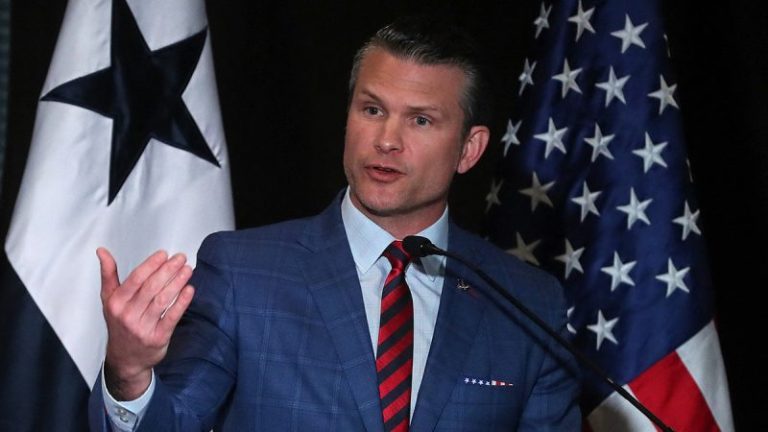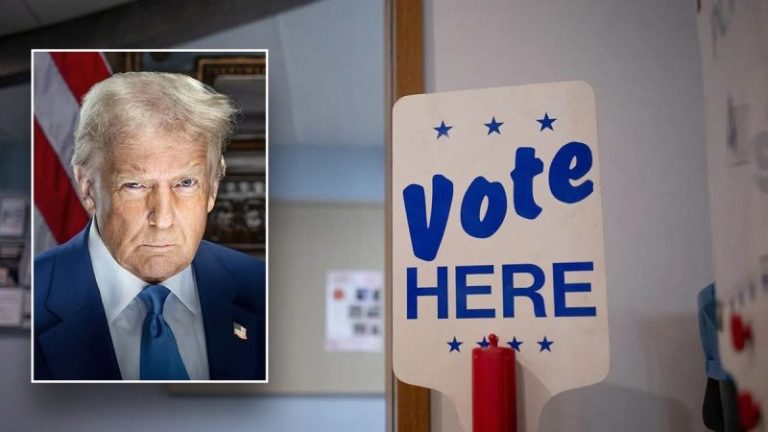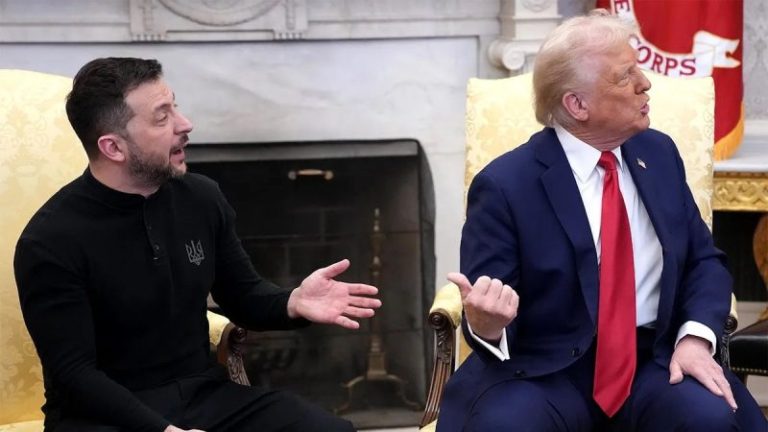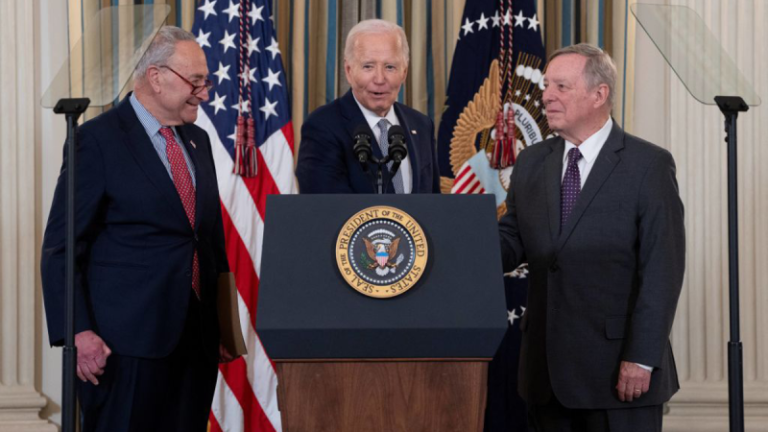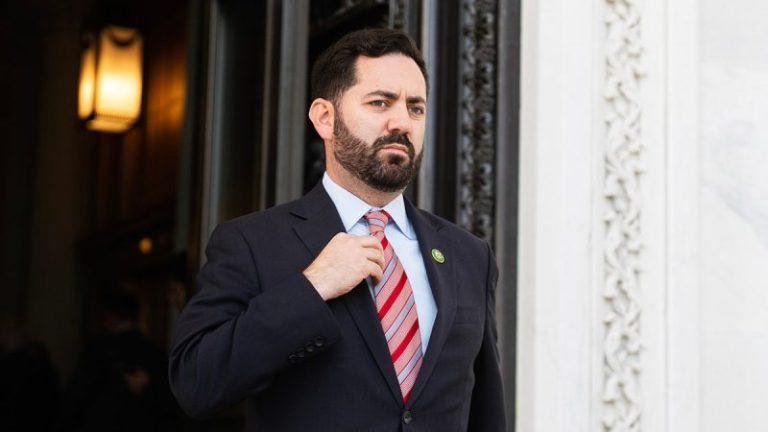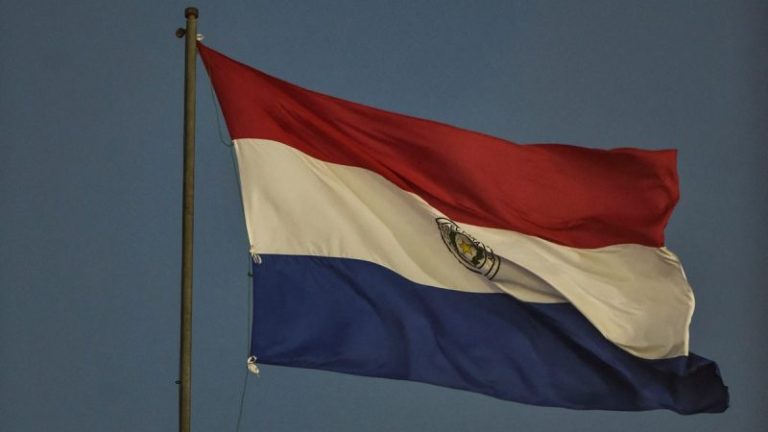Secretary of Defense Pete Hegseth may have deployed to Iraq and Afghanistan — but now he’s facing another battle: this time on his home turf at the Pentagon.
Controversy has plagued Hegseth since Trump first nominated him to serve as the secretary of defense, from sexual assault and drinking allegations, to two Signal chat debacles, and an op-ed suggesting that Hegseth may be on the way out.
The new Signal controversy, along with the op-ed, are only the latest blows in what the Trump administration claims are sustained effort against Hegseth as defense secretary, dating back to his nomination.
Scrutiny has heightened after a Sunday New York Times report said that Hegseth shared information about a March military airstrike against the Houthis in a Signal messaging app group chat that also included his wife, brother and personal lawyer.
That incident follows a similar episode in March, when the Atlantic editor-in-chief Jeffrey Goldberg was added to a Signal group chat alongside Hegseth, Vice President JD Vance and others, to discuss the same attack on the Houthis.
While the White House continues to back Hegseth, a series of Democratic coalitions and multiple lawmakers are calling for Hegseth’s resignation.
Senate Armed Services Committee ranking member Sen. Jack Reed, D-R.I., is urging for the Pentagon’s inspector general to launch an investigation into therecentSignal chat allegations
‘Since he was nominated, I have warned that Mr. Hegseth lacks the experience, competence, and character to run the Department of Defense. In light of the ongoing chaos, dysfunction, and mass firings under Mr. Hegseth’s leadership, it seems that those objections were well-founded,’ Reed said in a Sunday statement. ‘Accountability starts at the top, and I have grave concerns about Secretary Hegseth’s ability to maintain the trust and confidence of U.S. service members.’
Meanwhile, Vance told reporters Wednesday that he believed Hegseth is doing a ‘great job.’
In response to a video post on X of Vance issuing the remarks, the Pentaton’s Rapid Response Team replied: ‘We will not be stopped. We will not be deterred.’
While the secretaries of defense historically have received bipartisan support in the Senate, the upper chamber did not issue broad backing for Hegseth’s nomination.
The Senate confirmed Hegseth along party lines in January, with all 47 Democrats opposing his nomination.
Every senator except for Kirsten Gillibrand, D-N.Y., voted to confirm Trump’s first secretary of defense in 2017, retired Marine Gen. Jim Mattis. Likewise, the Senate voted in 2019 by a 90–8 margin to confirm Trump’s second secretary of defense, Mark Esper.
Hegseth first came under fire as sexual assault allegations emerged leading up to his confirmation. For example, he told lawmakers in written responses during his confirmation process that he had paid $50,000 as part of a settlement payment to a woman who had accused him of sexual assault in 2017. The police report on the incident says a woman had alleged that Hegseth sexually assaulted her in a hotel room, confiscated her phone and blocked the door.
Hegseth told lawmakers that he had been ‘falsely accused’ by the woman.
Hegseth also faced allegations of alcohol misuse during the confirmation process. In response, Hegseth told lawmakers that he is not a ‘perfect person,’ but said he was the subject of a ‘coordinated smear campaign orchestrated in the media.’
Controversy has not left Hegseth since the Senate confirmed him in January, however.
Hegseth’s role in the original Signal chat that included the Atlantic editor-in-chief, Goldberg, emerged in the spotlight in March following an initial report. Even so, National Security Advisor Mike Waltz’s team was responsible for creating the chat.
Hegseth has said that no ‘war plans’ were discussed in both the initial Signal chat with Goldberg, and the one with his wife. Additionally, he said that all discussions conducted over Signal were unclassified.
‘I said repeatedly, nobody is texting war plans,’ Hegseth told Fox News Tuesday. ‘I look at war plans every day. What was shared over Signal then and now, however you characterize it, was informal, unclassified coordinations, for media coordinations and other things. That’s what I’ve said from the beginning.’
Staff firings at the Pentagon have also shined a light on Hegseth’s leadership.
John Ullyot, a former senior communications official for the Pentagon who stepped down from his post in April under Hegseth, wrote that the abrupt Friday firings of three of Hegseth’s ‘most loyal’ advisors were alarming and ‘baffling.’ Hegseth’s aide Dan Caldwell, his deputy chief of staff Darin Selnick and chief of staff to the deputy defense secretary, Colin Carroll, were all ousted.
‘The dysfunction is now a major distraction for the president — who deserves better from his senior leadership,’ Ullyot wrote in a Sunday op-ed for Politico.
‘Trump has a strong record of holding his top officials to account. Given that, it’s hard to see Defense Secretary Pete Hegseth remaining in his role for much longer.’
Support for Hegseth is also cracking within Trump’s own party. For example, Rep. Don Bacon, a former Air Force general who serves on the House Armed Services Committee, told Politico on Monday that Hegseth is an ‘amateur person’ and that he doesn’t believe that Hegseth has the experience to lead the Pentagon. These concerns started from the ‘get-go,’ said Bacon, a Republican from Nebraska.
NPR reported on Monday that the White House was eying a new secretary of defense. The story was based on one anonymous U.S. official who was not authorized to speak to the media.
Meanwhile, the White House has pushed back on allegations that it is eyeing a replacement for Hegseth.
‘He is bringing monumental change to the Pentagon, and there’s a lot of people in the city who reject monumental change, and I think, frankly, that’s why we’ve seen a smear campaign against the Secretary of Defense since the moment that President Trump announced his nomination before the United States Senate,’ White House Press Secretary Karoline Leavitt told reporters Tuesday.
‘Let me reiterate: The president stands strongly behind Secretary Hegseth and the change that he is bringing to the Pentagon, and the results that he’s achieved thus far speak for themselves,’ Leavitt said.
The Associated Press contributed to this report.

